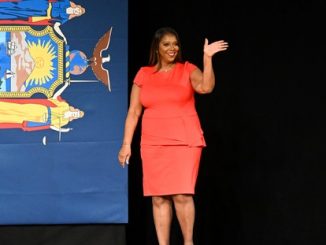
Donald Trump said the agreement would be ‘really good’ for both sides – as British businesses hope for relief from his brutal tariffs . In an on-camera call between the leaders, Keir Starmer paid tribute to negotiators and the Special Relationship. There are no countries that are closer than our two countries,’ he said. ‘We’ve always had a fair and balanced relationship between our countries.’ Sir Keir said he and Mr Trump – who was accompanied by British ambassador Lord Mandelson in the Oval Office – had managed to ‘achieve something that many others hadn’t’. However, there have been warnings that the ‘devil will be in the detail’ of the terms.
| Published May 9, 2025
Tories accuse Starmer of ‘shafting’ Britain with US trade deal: Trump lowers tariffs on car and steel exports to America while US farmers get access to Britain
President Donald Trump and U.K. Prime Minister Keir Starmer announced a new U.S.-U.K. trade agreement aimed at easing recent trade tensions and enhancing economic cooperation between the two nations. The agreement includes significant tariff reductions, with the U.S. set to lower tariffs on British steel and aluminum exports from 25% to 0%, and reduce tariffs on up to 100,000 British cars annually from 27.5% to 10%. In return, the U.K. will eliminate its 19% tariff on U.S. ethanol and increase imports of American beef, expanding market access for U.S. farmers.
The deal also enhances aerospace cooperation, allowing British companies to export aircraft parts to the U.S. without tariffs. As part of this arrangement, a British airline has committed to purchasing $10 billion worth of Boeing airplanes. Although pharmaceuticals are not immediately affected, the U.K. secured a commitment for preferential treatment of its pharmaceutical exports if the U.S. imposes tariffs in the future.
Under the new package:
-
The impact of the eye-watering 25 per cent levies on cars will be eased with a quota of 100,000 a year that will be charged at a lower rate of 10 per cent. That will roughly cover the UK’s annual exports;
-
The 25 per cent tariffs on steel exports to the US will be reduced to zero;
-
There will be reciprocal access to markets for beef, but the UK government insisted food standards will not be compromised for products such as chlorinated chicken and hormone-treated beef;
-
British-made Rolls Royce engines will be excluded from tariffs but Mr Lutnick said the UK was going to buy £10billion worth of Boeing aircraft;
-
Britain is still hoping to head off the threat of an assault on the pharma sector, but conceded that ‘work will continue’ on that front;
-
The Digital Services Tax is ‘unchanged’ as a result of the agreement, according to Downing Street, despite speculation over concessions. Instead the nations will ‘work on a digital trade deal’;
-
Sir Keir said the Government is ‘discussing’ the British film industry with Mr Trump’s team after he threatened to put 100 per cent tariffs on the sector.
Both leaders highlighted the agreement as a milestone in strengthening the economic relationship between the U.S. and the U.K. President Trump emphasized that the deal would support American industries, particularly agriculture and manufacturing, while Prime Minister Starmer described it as a win for British businesses seeking better access to the U.S. market. The agreement is seen as a foundation for further trade discussions on more complex sectors, such as digital services and pharmaceuticals.
The new U.S.-U.K. trade agreement has several significant implications:
1. Strengthened U.S.-U.K. Relations:
-
The agreement reinforces economic ties between the two allies, potentially serving as a foundation for a broader free trade agreement in the future.
2. Boost for Key Industries:
-
U.S. farmers, steel manufacturers, and the aerospace sector are expected to benefit from reduced tariffs and expanded market access, while British car manufacturers gain a competitive advantage in the U.S. market.
3. Competitive Pressure on EU:
-
The deal could pressure the European Union, as the U.K. demonstrates its ability to secure favorable trade terms outside the EU framework, potentially influencing other countries’ trade strategies.

Donald Trump said the agreement would be ‘really good’ for both sides – as British businesses hope for relief from his brutal tariffs

In an on-camera call between the leaders, Sir Keir Starmer paid tribute to negotiators and the ‘special relationship’

The premiers raised the prospect of a Transatlantic trade deal when they met at the White House in February

4. Potential Trade Balance Concerns:
-
While the U.S. secures agricultural and aerospace gains, the tariff reduction on British cars may increase imports, raising concerns about maintaining a balanced trade relationship.
5. Future Negotiation Leverage:
-
By securing commitments on pharmaceuticals, the U.K. positions itself for stronger terms in future negotiations, particularly in digital trade and healthcare.
6. Political Messaging:
-
For President Trump, the agreement is a demonstration of his commitment to boosting American industries, while for Prime Minister Starmer, it is a showcase of his ability to secure post-Brexit economic opportunities for the U.K.
Overall Takeaway:
The new U.S.-U.K. trade agreement represents a strategic win for both nations, strengthening economic ties and offering mutual benefits in key industries such as steel, automobiles, agriculture, and aerospace. It demonstrates the U.S. and U.K.’s commitment to deepening bilateral trade relations while providing a model for future agreements in a rapidly evolving global trade landscape.
SOURCES: DAILYMAIL ONLINE – Trump reveals ‘great’ trade deal to ‘open up’ the UK: President boasts of ‘comprehensive’ agreement as he says US farmers will get more access
THE EPOCH TIMES – New US–UK Trade Agreement—What to Know





Be the first to comment